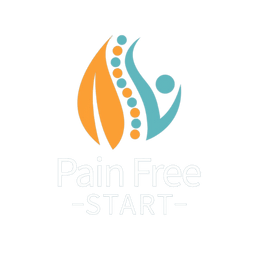Collagen: Hype or Help for Joint Pain?
If you’ve looked for ways to support your joints lately, chances are you’ve seen collagen supplements — powders, pills, drinks, even coffee creamers — promising to reduce joint pain and rebuild cartilage.
But do they actually work?
As a physiotherapist, I’ve had many clients ask about collagen. And like many things in health, the answer isn’t black and white. Let’s dive into what collagen is, what the research says, and whether it’s worth adding to your joint care routine.
What Is Collagen, and Why Does It Matter?
Collagen is the most abundant protein in the body. It acts like scaffolding — giving structure to your joints, cartilage, tendons, skin, and bones. As we age, our natural collagen production declines, which can contribute to joint stiffness, reduced flexibility, and degeneration (especially in osteoarthritis).
That’s where supplements come in — the idea is that by taking collagen, you might help your body rebuild what’s breaking down.
But does the science back that up?
What the Research Says About Collagen for Joint Pain
Some Promising Studies
A growing number of studies show that hydrolyzed collagen (also called collagen peptides) may:
- Reduce joint pain in athletes and active adults
- Improve symptoms in people with osteoarthritis
- Support cartilage regeneration in early-stage arthritis
For example:
- A 2018 review found that collagen supplements showed statistically significant improvement in joint pain compared to placebo.
- Several small trials in osteoarthritis patients showed improvements in pain, stiffness, and mobility after 8–24 weeks of supplementation.
But It’s Not a Miracle Cure
It’s important to remember:
- Collagen supplements aren’t instant fixes. They often take 2–3 months to show benefits.
- Results can vary depending on the type, dose, and quality of the supplement.
- They’re not a replacement for strength training, movement, or targeted rehab.

Improve your posture today in my FREE interactive masterclass. Click here to learn more and enrol.
Types of Collagen to Know
There are many types of collagen, but for joint health, look for:
- Type II Collagen – Found in cartilage; often used for arthritis support
- Type I & III Collagen – More common in skin and connective tissue, but still relevant
- Hydrolyzed Collagen Peptides – Broken down into smaller pieces for easier absorption
Some products also include:
- Vitamin C – Helps collagen synthesis
- Hyaluronic acid – Supports joint lubrication
- Glucosamine/Chondroitin – Traditional joint support nutrients
My Take as a Physio
Personally, I’ve become more open to collagen — especially after seeing positive effects in clients who combined it with exercise. Some feel their knees ache less, or they move more freely.
But I always say:
“Supplements can support the process — but they don’t replace the process.”
Meaning:
- You still need to move.
- You still need strength and control around joints.
- You still need to address habits that aggravate pain.
If you’re already doing the right things physically, collagen may give you an extra boost.
Who Might Benefit from Collagen?
You might consider collagen if:
- You’re experiencing early-stage arthritis or joint stiffness
- You’re active and want to protect your joints
- You’ve had an injury or are in rehab
- You’re over 40 and want to support healthy aging
Who Might Want to Skip It?
- If you’re expecting quick results
- If you’re not also doing movement-based rehab or strength training
- If you have a sensitive gut (some people report mild digestive upset)
As always, speak with your GP or a health professional if you’re unsure.
How to Choose a Collagen Supplement
Look for:
- Hydrolyzed collagen peptides (easier to absorb)
- Clinically studied doses (usually around 10g/day)
- Added Vitamin C or other joint-supportive nutrients
- No fillers or artificial sweeteners
Final Thoughts: Is Collagen Worth It?
Collagen supplements aren’t magic — but they’re not a scam either. When used as part of a holistic joint care plan, they may help reduce pain, improve movement, and support your body’s natural repair processes.
If you’re curious, they’re safe to try — just make sure you’re pairing them with strength, smart movement, and recovery, too.
Take care, Helen
Helen Manders BSc (Hons) MCSP HCPC
Chartered Physiotherapist Since 2001
P.S. I’m her to support you with pain or injury. Click here to learn how I can help you.



